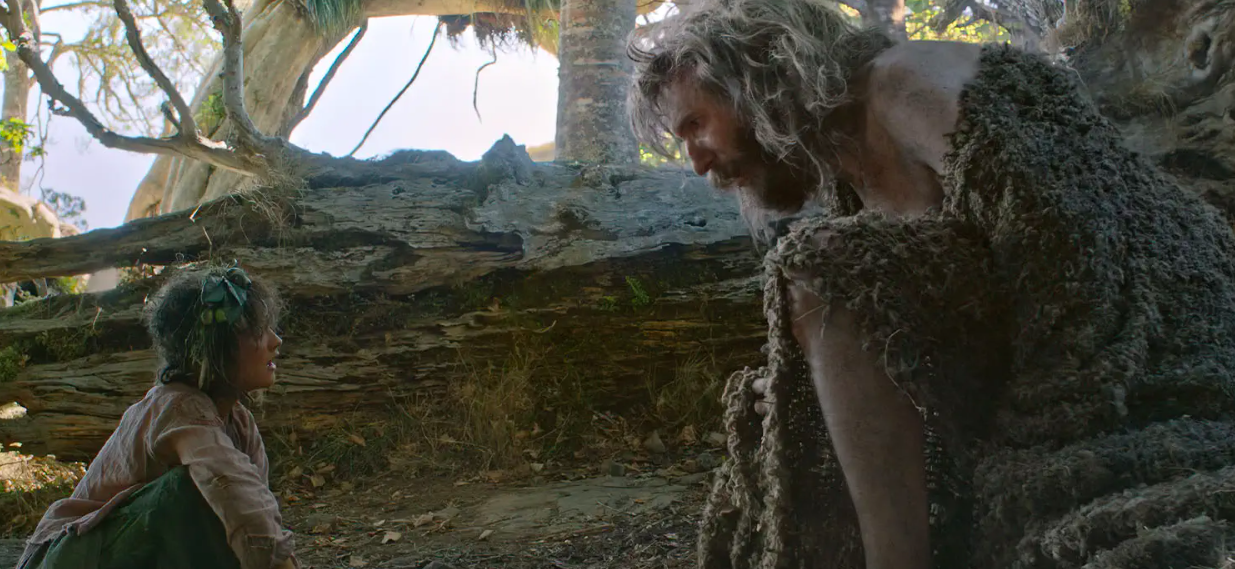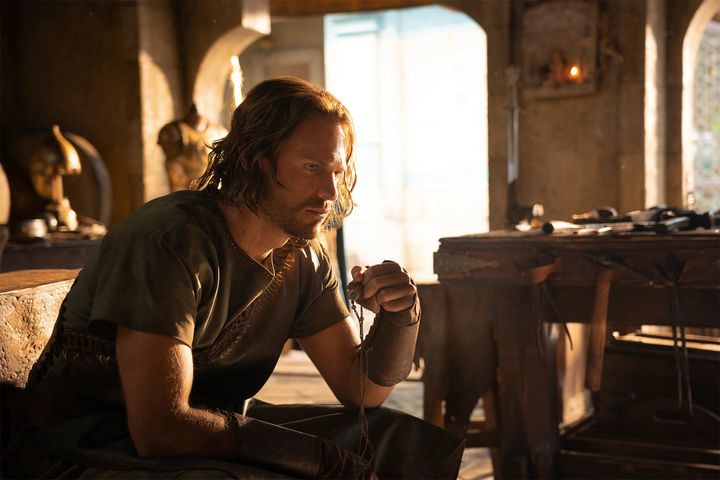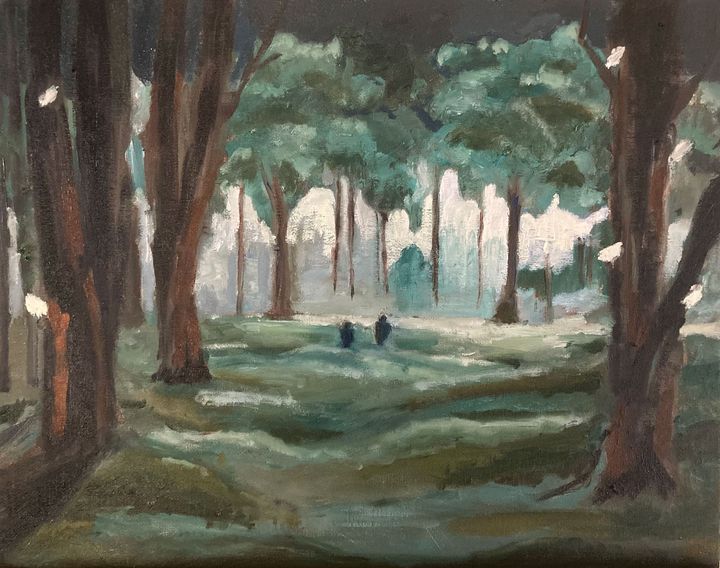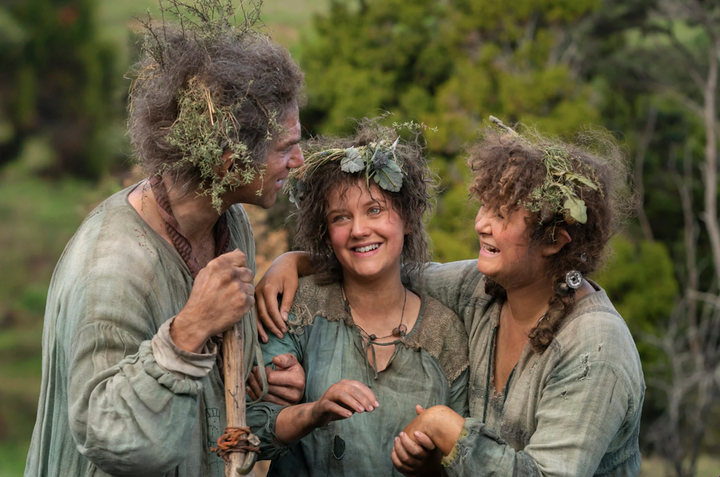Evil in The Lord of the Rings

Elves might be graceful and powerful, dwarves might be strong and steadfast in character, but Hobbits are the center of the Lord of the Rings universe as the carriers of the One Ring. As simple creatures who do not wish for much, Hobbits are surprisingly resistant to the corruption of the ring. In fact, Sauron did not even know about the existence of Hobbits before the Third Age.
Even after they settle in the Shire, Hobbits continue some of their ancient habits: “The Shire at this time had hardly any ‘government’. Families for the most part managed their own affairs. Growing food and eating it occupied most of their time” (Prologue, Volume I). Hobbits are known to enjoy feasts, smoking, and exchanging gifts. In fact, they enjoy spending so much that they give presents to other people on their birthdays instead of receiving presents. Assuming it's someone's birthday every day, each Hobbit gets at least one present per week! In other words, they do not shy away from spending their resources. In fact, their lives are based on the expenditure of resources.
From a temporal point of view, we can say that Hobbits are more focused on the present. They don't like calculating and thinking about the future. And a mindset focused on the future would require them to accumulate resources. When we think about it, all stages of modern life are oriented toward the future: getting into college, finding a job, saving up for retirement... It is fair to say that this mindset breeds uncontrollable desire, dissatisfaction, and greed. On the contrary, the kind of simple life that Hobbits lead, focused on the present, is closely associated with the absence of evil. Constant feelings of dissatisfaction and aspiring for something else do not occupy a big part of their existence.
What about the past? In the prologue to the first volume, Tolkien explains that Hobbits do not and did not like technology more complicated than “forge-bellows, a water-mill, or a hand-loom” (Prologue). And one technology they were particularly uninterested in was the writing of history. Even though they are ancient people with a long history, according to the novels, they possess no records of it. Only the elves preserve the written records of the Elder Days, but their histories are not at all concerned with Hobbits. Tolkien mentions that Hobbits’ record of their own history only began after the migration to the Shire. Even after that, most Hobbits were interested in writing and recording simple and daily facts, rather than elaborate and analytic writing of history. They liked writing and speeches that were simple and obvious.
In Plato's "Phaedrus," Socrates gives an account of the discovery of writing. In the said account, an Egyptian king tells an Egyptian god called Theuth about his discovery of writing. The god responds:
O man full of arts, to one it is given to create the things of art, and to another to judge what measure of harm and of profit they have for those that shall employ them. . .And it is no true wisdom that you offer your disciples, but only its semblance, for by telling them of many things without teaching them you will make them seem to know much, while for the most part they know nothing, and as men filled, not with wisdom but with the conceit of wisdom, they will be a burden to their fellows.
At the root of this argument against writing is Plato's Theory of Forms. According to this theory, the physical world we inhabit and our experiences are one step removed from the true reality. And writing would be even further removed because it is based on these already false appearances of the physical world. The quote above suggests that writing is misguiding and that it distances humans from reality. Indeed, it is hard to claim that any account of the past reflects the truth.
Following this, the past and curiosity about the past are associated with evil forces in The Lord of the Rings. To better understand this, let's consider how Tolkien describes the character of Gollum before he becomes the master of the ring. Gollum was called Sméagol before the One Ring conquered his mind. In the first volume of the novel, Tolkien describes Sméagol like this:
The most inquisitive and curious-minded of that family was called Sméagol. He was interested in roots and beginnings; he dived into deep pools, he burrowed under trees and growing plants; he tunneled into green mounds; and he ceased to look up at the hill-tops, or the leaves on trees, or the flowers opening in the air: his head and his eyes were downward” (Prologue, Volume I).
In other words, Sméagol failed to live in the present and was mesmerized by the past, meaning the ring attracts a particular form of curiosity: an interest “in roots and beginnings.”
After migrating to the Shire, Hobbits continue many of their habits like feasting, smoking, and simply enjoying life in the Shire. But, they are also in contact with other races and their community is slowly becoming more organized. As mentioned previously, Hobbits had no knowledge and record of the beginnings of their race and were not interested in those kinds of things at all: “The love of learning was far from general among [Hobbits]” (Prologue, Volume I). They were living in the present with no dissatisfaction or an appeal to something else. After moving to the Shire, they begin to write history. In fact, Hobbits write the Red Book of Westmarch which is an account of the events of The Hobbit and The Lord of The Rings. Supposedly, the novels are translations of the books written by Hobbits. This can be interpreted as the Hobbit's small entrance into the rational world of historical curiosity and contemplation. This indicates a radical change of mindset from the present to the past. And it is worth noting that this new curious mindset is accompanied by the rising of evil in the Hobbit realm.
The first episodes of The Rings of Power explore this notion of evil and curiosity in the Harfoot realm. George Bataille, a French philosopher, has a broad and complex description of the concept of evil that might explain the cyclicality of good and evil that we see in The Lord of the Rings. According to Bataille, in most societies, evil actions are actions against the common good. In fact, evil can be described as the opposite of reason that best ensures the benefit and continuity of society.
We see that Harfoots enjoy living in the present, but they are also governed by rules aimed at preserving the common interest, which is the survival of the clan. The most important rule for Harfoots seems to be to live hidden and not get involved with other races.
But there is also an instinctual and unreasonable drive towards transgression and destruction. Nori, as a curious and adventurous young Hobbit, represents this force of destruction and breaks the first rule of her clan. Her mother, as an adult and reasonable Harfoot committed to the laws of the clan, explains the risks of Nori’s actions. She explicitly says that the only way they can survive is by being hidden.
Nori, on the other hand, cannot explain the reasons behind her actions. Bataille writes about different types of Evil that have the same destructive force. Nori's actions are driven by the forces of evil, dissatisfaction with reality, and a primitive desire for chaos and destruction. This is "the Evil which goes against our own interests and which is brought about by a passionate desire for liberty...a deviation taken by Good." Bataille's description of evil is compelling because it accounts for the complexity and attraction of the concept of evil that is often associated with supernatural forces. There is a drive towards destruction even in the Good itself. This is why, despite it being against the benefit of the community, many people would perceive Nori's actions as ambiguous, yet justifiable. Ultimately, evil and good are cyclical in The Lord of the Rings, and evil forces might give rise to good.


